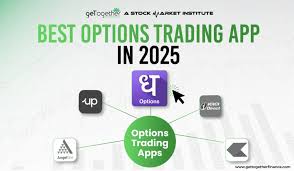
Which Trading App is Best? A Comprehensive Review
Choosing the right trading app can significantly affect your investment success. With a plethora of options available, traders often wonder which trading app is best bestappstrading.com for their specific needs. This article aims to dissect the features of some of the leading trading apps in the market, helping you make an informed decision.
Factors to Consider When Choosing a Trading App
Before diving into the reviews, let’s explore the primary factors that should influence your choice of a trading app:
- User Interface: A clean and intuitive user interface can vastly enhance your trading experience. Complex apps may lead to mistakes, especially for beginners.
- Fees and Commissions: Different apps have varying fee structures. Understanding these fees can save you significant amounts of money over time.
- Assets Offered: Not all apps provide access to the same range of assets. If you’re interested in specific stocks, forex pairs, or cryptocurrencies, ensure they are offered.
- Tools and Features: Advanced charting, stock screeners, and research tools can assist you in making informed decisions. Look for apps that provide the tools you need.
- Customer Support: Reliable customer service is essential, especially during critical trading hours. Ensure the app has support options that suit your needs.
- Security: The safety of your funds and personal information should be a top priority. Choose an app with robust security measures in place.
Top Trading Apps of 2023
1. Robinhood

Robinhood has gained immense popularity for its commission-free trading platform. With an easy-to-navigate interface, it is particularly appealing to new traders. The app offers stocks, ETFs, options, and cryptocurrencies. However, while the trading fees are non-existent, users should be wary of other potential charges, such as margin fees. Additionally, Robinhood has faced criticism over its customer service and technical outages during peak trading hours.
2. eToro
eToro stands out with its social trading feature, allowing users to follow and copy the strategies of experienced traders. This makes it a fantastic choice for beginners looking to learn from the pros. eToro offers a wide range of assets, including stocks, cryptocurrencies, ETFs, and commodities. On the downside, its fee structure may be less favorable, particularly for inactive accounts.
3. TD Ameritrade
TD Ameritrade is a robust trading platform that caters to both novice and experienced traders. The app offers comprehensive research tools, educational resources, and a wide array of investment options. It’s known for its top-notch customer service and reliability. However, it may not be as user-friendly for complete beginners due to its extensive features.
4. Fidelity
Fidelity is often praised for its customer service and educational resources, making it an excellent choice for both beginners and experienced investors. The app offers zero commission trades on stocks and ETFs, along with an extensive selection of investment options. Users benefit from advanced research tools, but the app’s interface may seem slightly outdated compared to more modern competitors.

5. Webull
Webull is another commission-free trading platform that caters to tech-savvy traders. Its advanced charting tools and analytical features make it ideal for active traders. Webull offers stocks, ETFs, and options trading. While the learning curve may be steep for beginners, the features make it worth the effort for those who are serious about trading.
User Reviews and Testimonials
Understanding user experiences can provide insight into which app might work best for you. Websites and forums dedicated to trading often provide reviews and testimonials from actual users. Here are some common sentiments expressed by users:
- Robinhood: Users appreciate the ease of use and commission-free trades but express concern over service outages and support responsiveness.
- eToro: Many users enjoy the social aspect of trading, helping them learn and grow, though some have voiced concerns over the higher fees.
- TD Ameritrade: Users rave about the research tools and customer service, although some find it overwhelming due to its extensive features.
- Fidelity: Customers are often satisfied with the level of support and educational content but wish for a more modern app interface.
- Webull: Traders love the advanced features but note that it may not be the best starting point for people completely new to trading.
Conclusion: Which Trading App is Best for You?
The answer to which trading app is best ultimately depends on your individual needs as a trader. Beginners may gravitate towards apps like Robinhood or eToro, while more seasoned traders might prefer the advanced features of TD Ameritrade or Webull. Always weigh the factors discussed in this article and take advantage of promotional offers to test out different platforms before fully committing.
As you embark on your trading journey, do your homework, consider your trading style, and remember that the best trading app is the one that fits seamlessly into your investment strategy. Happy trading!
